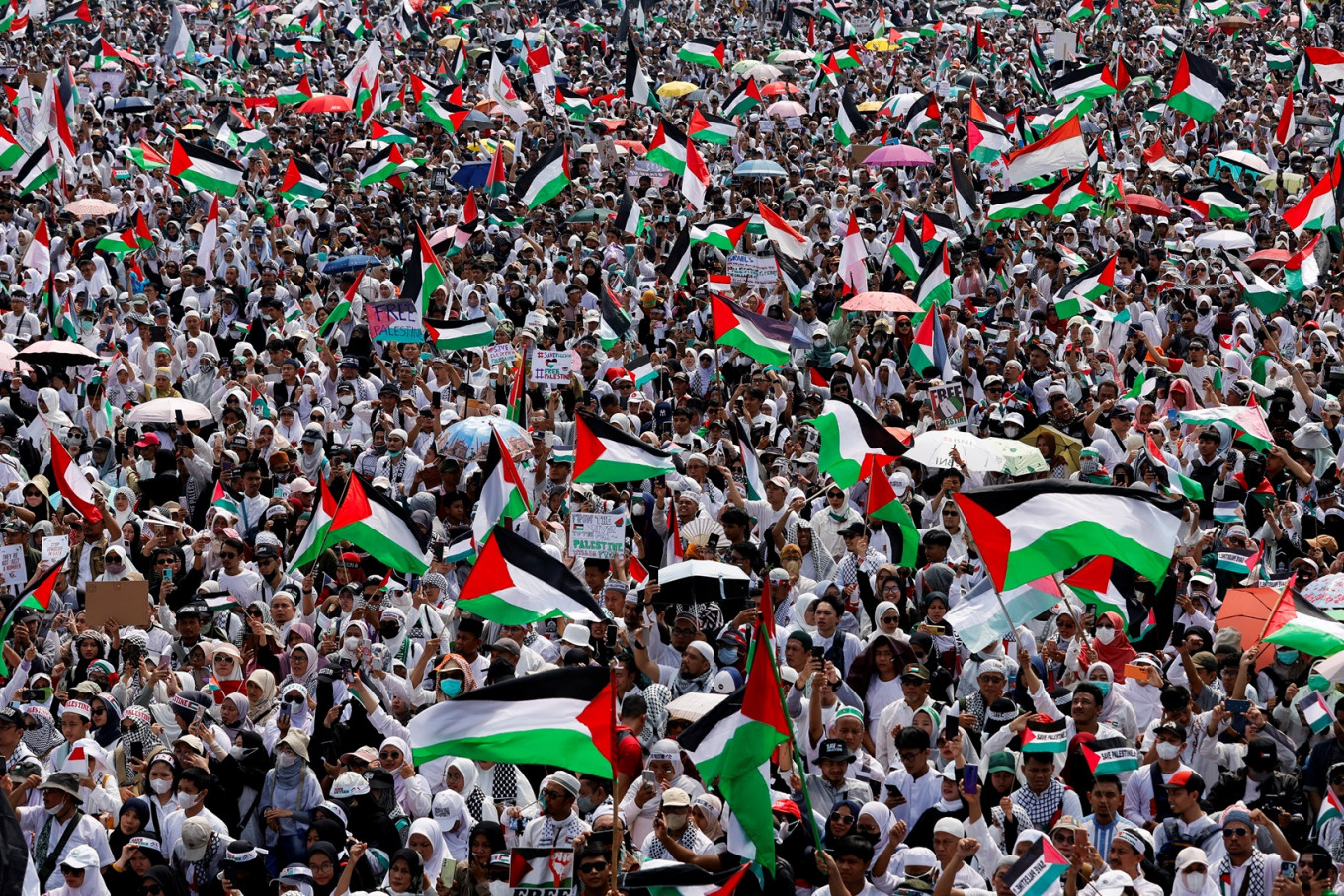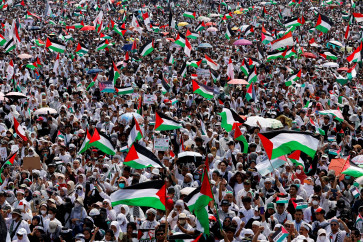Popular Reads
Top Results
Can't find what you're looking for?
View all search resultsPopular Reads
Top Results
Can't find what you're looking for?
View all search resultsAddressing algorithmic justice in the Palestine-Israel conflict
The TikTok account belonging to the Indonesian media outlet, Republika, which broadcast the Aksi Bela Palestina (Defending Palestine Action) event live at the National Monument, Jakarta on Nov. 5, was banned by the platform provider because it was deemed to be spreading hate speech
Change text size
Gift Premium Articles
to Anyone
A
fter more than one month, thousands of people have died in the conflict between Hamas and Israel. To date, the death toll has exceeded 10,000, mostly Palestinian civilians. Critical infrastructure in Palestine, such as hospitals, schools, electricity networks, internet and waterways, have also reportedly been destroyed by the Israeli army.
Moreover, an independent report conducted by Human Rights Watch indicates that Israel has used white phosphorus bombs, which are prohibited in international humanitarian law, in densely populated areas.
The world has reacted strongly to the humanitarian tragedy now unfolding in Palestine. Waves of support for Palestine and an immediate ceasefire have emerged not only in Muslim-majority countries or the Middle East but also in European cities such as London and The Hague, as well as in New York, in the United States.
These voices of support for the Palestinian cause have not only been expressed on city streets but also through social media platforms. One example of a support movement for Palestine is shown through posts with the “watermelon” emoji. The watermelon symbolizes support for Palestine because the colors resemble the country's flag.
However, just as Israel cut off water lines, electricity, and internet networks, as well as humanitarian aid routes to Palestine, world citizens’ support and sympathy for Palestine via social media also appears to be hindered by the policies and algorithms of Big Tech such as Instagram, Facebook and TikTok.
For example, the most common and most complained about issues by social media users are the significantly small number of views they get when voicing their support and sympathy for the Palestinian people through posts on social media platforms. There have been cases where social media platforms such as Instagram have taken down several posts because they are considered to violate their community guidelines without apparent reason.
Global NGOs such as Human Rights Watch and Amnesty International have even raised this indication of shadowbanning and censorship. They have highlighted and urged these big tech corporations so that the potential and actual impacts of violations of freedom of speech and human rights in their operations can be prevented and addressed.



















